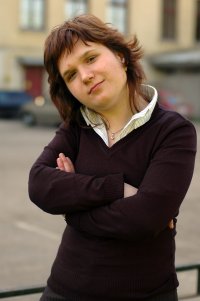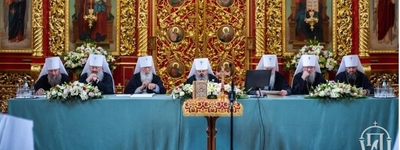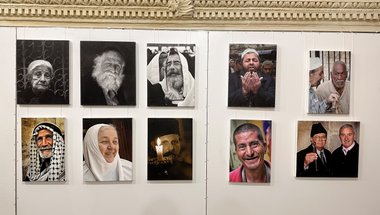Reconciliation of Memories

 The beginning of May is a challenge for Ukrainians: during this time the conflict of memories, which is always at stake in Ukrainian history and thus projected onto the present, becomes the most harsh and painful. May 9 and May 16 – two important dates of commemoration – present two myths of Ukraine and two visions of its future. May 9 is a holiday of Soviet legacy – the day of the Great Victory in the Great Patriotic War (commonly known as World War II) and May 16 is day of commemoration of the victims of the communist regime. The fact that these two opposite holidays are so close in the Ukrainian calendar is rather symbolic than accidental. We live like this.
The beginning of May is a challenge for Ukrainians: during this time the conflict of memories, which is always at stake in Ukrainian history and thus projected onto the present, becomes the most harsh and painful. May 9 and May 16 – two important dates of commemoration – present two myths of Ukraine and two visions of its future. May 9 is a holiday of Soviet legacy – the day of the Great Victory in the Great Patriotic War (commonly known as World War II) and May 16 is day of commemoration of the victims of the communist regime. The fact that these two opposite holidays are so close in the Ukrainian calendar is rather symbolic than accidental. We live like this.
Since Ukraine gained independence 19 years ago, Ukrainian intellectuals as well as ordinary people have been trying to understand their history. Which facts were glorious and which were shameful? Who are our heroes and who are inglorious bastards? What was victory and what was defeat? The dichotomy (this is a simplification because there are more than two general opinions) in the perception of historical facts and thus in building a national identity is the sign of modern Ukrainian times. The dichotomy widely used in wars of politicians and speculations of scholars leads to the concept of two separate countries artificially existing under one government. There are some radical opinions of separation but they are so marginal that they cannot be taken seriously. Besides, no one would be able to decide about the line of separation – the Zbruch (the old border between Russia and Austria), the Dnipro (which geographically divides the country into two). Because geographically a border doesn’t exist – these are memories, perceptions, identities, and values which differ. Therefore, the solution is not the division of the country but reconciliation. Reconciliation of memories is the most important but also the most difficult.
During the years of independence Ukrainians were not able to find a model of history that would be accepted by all. On the contrary, history divides the society, and the most disputable issue is World War II. Basically there are two “canons” of WWII history – the “Stalin canon” and the “Bandera canon.” According to the Stalin canon, Ukrainians were fighting as Soviet people against Nazis and obtained the glorious victory bringing freedom and prosperity to Europe. Therefore May 9 is the Day of Great Victory to be proud of. According to the Bandera canon, Ukrainians didn’t support the communist regime and were fighting equally against Nazis and Soviets. Therefore May 9 is not a holiday because Ukraine was occupied by Soviets.
This is an extreme oversimplification because both canons have a lot of peculiarities, details, etc. But this oversimplified scheme gives more or less a detached picture of two legends, two myths Ukrainians are dealing with. One part celebrates May 9 with parades and accepts Soviet legacy as more or less a positive experience (extremists build a Stalin monument in Zaporizhia, in May 2010), the other part is mourning over the Soviet period and glorifies the UPA (the Ukrainian Insurgent Army), fighting against Soviets (extremists burn Soviet flags in Lviv, May 2010). An important disclaimer: “Soviets” is not equal to Russians, “Soviets” includes Ukrainians and that is the issue that divides. While one part of Ukrainians sees their ancestors as heroes, the other sees them as enemies and vice versa. For some victory over the Nazis is a Great Victory (re-liberation), while for other it is the beginning of catastrophe (Soviet occupation).
Ukrainian historian Yaroslav Hrytsak calls this the “OR” syndrome. May 9 is a Great Victory or a Great Defeat. Stepan Bandera is a hero or a Nazi collaborator. Soviet soldiers – deliberators or occupants. But history can never be described in or-or sentences. Sometimes it’s “and-and,” or “or-and,” or even “or-or, and-and.” May 9 is a Great Victory and a Great Defeat. Stepan Bandera is a complex figure in Ukrainian history. Soviet soldiers are deliberators and occupants. Accepting such a view of history Ukrainians can gradually reconcile their memories. In the opinion of professor Hrytsak personal stories rather than the collective memory can lead to reconciliation because they show the complexity and different sides of the events. The Second World War doesn’t have a linear version like in every war.
In the opinion of the Ukrainian dissident Myroslav Marynovych the concept of forgiveness should be included in the discussion about Ukrainian history. Only the victim can forgive the persecutor. And if some Ukrainians see themselves as victims they need not only to remember but also to forgive, even if sometimes this means forgiving themselves. This is a vertical understanding of reconciliation of memories – a Christian idea of reconciliation and God’s forgiveness.
Political turbulence doesn’t let the wounds of the past heal but on the contrary opens old wounds. Therefore, not politics but individual initiatives can reconcile individual memories. Sometimes the idea of reconciliation is substituted with geopolitics and international affairs: the Russian Navy in Crimea or gas issues. But difficult Ukrainian-Russian and Ukrainian-Polish dialogues can only start after the Ukrainian-Ukrainian dialogue of forgiveness and reconciliation.











